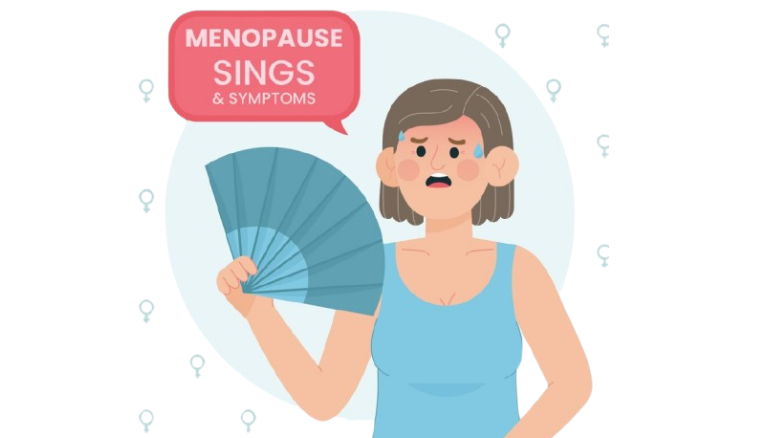
As you approach your 40s and beyond, you might find yourself on a journey that many women before you have travelled. This journey is menopause, a natural phase of life that signifies the end of your reproductive years. While it's a universal experience, menopause manifests differently for each woman, often bringing with it a variety of symptoms that can seem daunting. Understanding these symptoms and how to manage them can make this transition smoother and less intimidating. So, buckle up as we delve into the common symptoms of menopause and offer practical strategies to help you manage them with grace and ease.
Have you ever wondered why some women sail through menopause while others struggle with a plethora of symptoms?
Key Takeaways
- Understanding Symptoms: Gain insights into the most common symptoms of menopause and their impact on daily life
- Effective Management Strategies: Discover practical tips and lifestyle changes to alleviate menopause symptoms
- Medical Guidance: Learn when it's essential to seek professional medical advice
- Empowerment through Knowledge: Equip yourself with the information needed to navigate this life phase with confidence
- Community and Support: Recognise the importance of support networks during menopause
Common Symptoms of Menopause & How to Manage Them
Menopause is a significant life event that can bring about a variety of physical and emotional changes. These changes result from the decline in oestrogen levels, leading to symptoms that can affect your daily life. By understanding these symptoms, you can take steps to manage them effectively, ensuring a smoother transition.
Hot Flushes and Night Sweats
Hot flushes are perhaps the most well-known symptom of menopause. They can cause sudden feelings of warmth, often accompanied by redness in the face and neck. Night sweats, as the name suggests, occur during sleep and can disrupt your rest, leading to fatigue and irritability.
To manage hot flushes and night sweats, consider dressing in layers. This allows you to remove clothing as needed to stay comfortable. Keep your living space cool, especially your bedroom, and use cotton sheets for breathability. Regular exercise and a healthy diet can also help regulate body temperature. Additionally, relaxation techniques, such as yoga or meditation, can reduce stress levels, potentially decreasing the frequency of these symptoms.
Mood Swings and Emotional Changes
Many women experience mood swings during menopause, often linked to fluctuating hormone levels. You might feel irritable one moment and tearful the next. These emotional shifts can be challenging, but there are ways to manage them.
Firstly, maintain an active lifestyle. Exercise releases endorphins, which can improve your mood. Secondly, ensure you're getting enough sleep, as fatigue can exacerbate mood swings. Thirdly, consider talking to a therapist or joining a support group, where you can share experiences and coping strategies. Lastly, practice mindfulness or journaling to help process your emotions.
Sleep Disturbances
Sleep disturbances are common during menopause, often linked to night sweats, anxiety, or the need to urinate more frequently at night. Poor sleep can lead to daytime tiredness and affect your overall well-being.
To improve sleep quality, establish a regular sleep routine. Go to bed and wake up at the same time each day, even on weekends. Create a relaxing bedtime ritual, such as reading or taking a warm bath. Limit caffeine and alcohol intake, especially in the evening, as they can interfere with sleep. If sleep issues persist, consult a healthcare provider for further guidance.
Vaginal Dryness and Discomfort
Vaginal dryness is another common symptom of menopause, resulting from decreased oestrogen levels. This can lead to discomfort during intercourse and contribute to urinary issues.
To alleviate vaginal dryness, use water-based lubricants or moisturisers designed specifically for vaginal use. Staying hydrated and avoiding harsh soaps or douches can also help maintain natural moisture. If symptoms persist or significantly impact your quality of life, speak to your doctor about other treatment options, such as hormone therapy.
Weight Gain and Metabolism Changes
Many women notice changes in body weight and shape during menopause, often due to a slower metabolism. This can be frustrating, but there are ways to manage weight gain.
Focus on a balanced diet rich in fruits, vegetables, lean proteins, and whole grains. Regular physical activity is crucial, combining both cardiovascular exercises and strength training to boost metabolism. Be mindful of portion sizes and try to eat mindfully, paying attention to hunger cues. If weight gain becomes a significant concern, a nutritionist or dietitian can provide personalised advice.
When to Seek Medical Advice
While menopause is a natural part of ageing, some symptoms may require professional intervention. If you experience severe symptoms that impact your quality of life, such as depression, persistent sleep disturbances, or unexplained weight changes, consult your healthcare provider. They can offer tailored treatments and therapies to help manage your symptoms effectively.
Menopause is a unique journey for every woman, filled with its own set of challenges and triumphs. By understanding the common symptoms and how to manage them, you can navigate this life stage with confidence and grace. Remember, you're not alone on this journey, and support is available when you need it.
In Summary:
Menopause brings a range of symptoms that can affect your physical and emotional well-being. However, with the right strategies and support, you can manage these changes effectively. From lifestyle adjustments to professional guidance, numerous resources are available to help you through this transition.
Facing menopause? Harsha Hospitals helps you manage symptoms like hot flashes, mood swings, and fatigue. We provide hormone therapy and lifestyle tips for a smooth transition.


